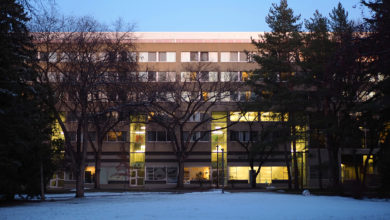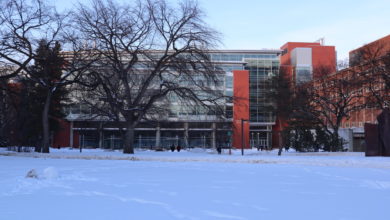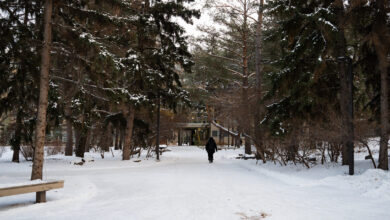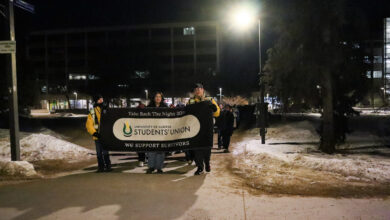For the first time, preferred names will be used at 2023 spring convocation
Using dead names at convocation makes what "should be a celebratory, cathartic moment" into "one of fear of possible danger from outing," says a student graduating this spring.
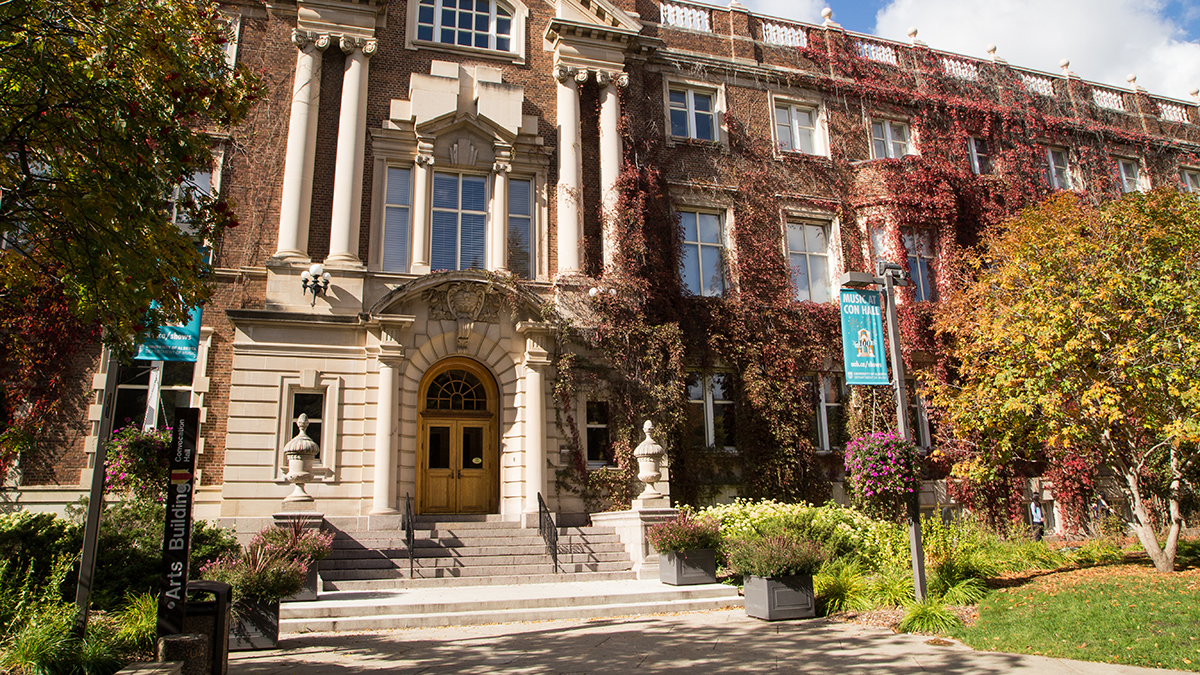 Joshua Storie
Joshua StorieStarting this spring, all convocations will have graduating students indicate their preferred names on the reader card and program.
Previously, only legal names were used in the ceremony to match the degree parchment. According to the Parchment Procedure Policy, because it is a legal document a students’ legal name must be used. “The university does not print nicknames, initials or names in parentheses on the parchment,” the policy states.
Calliope Draper, a political science student in the faculty of arts who will be graduating this spring, said they only found out about the policy when they and their partner were applying for graduation.
They said that their chosen name had been used in BearTracks and other relevant academic forms, but discovered that this was not the case for convocation.
“All of a sudden we were told that everything and anything to do with convocation was going to be dead names, which was truly surprising and unnecessary.”
Draper reached out to the Students’ Union and the Office of the Registrar to inform them of the issue and found them to be immediately cooperative.
They said that after reaching out to the Office of the Registrar, they were met with an “immediate effort to work towards this, and very effective and responsive communication.”
The Affirmed Name Steering Committee increasing use of preferred names
Norma Rodenburg, vice-provost and university registrar, and Carrie Smith, vice-provost (equity, diversity, and inclusion) are involved with the Affirmed Name Steering Committee, which supports the Affirmed Name Steering project.
“The affirmed name project is intended to align with our commitments to equity, diversity, and inclusion, particularly around gender identity and gender expression, as protected grounds under the Alberta Human Rights Act,” Smith said.
Legal names were previously used on the reader card and program to match the degree parchment, which is an official legal document, Rodenburg said.
“We appreciate that it doesn’t always work in that way.”
Rodenburg explained that this year both the reader card and the program will pull students’ preferred name from the system.
Smith explained that a challenge is that in most online university systems, legal names are still displayed.
“The problem is that in every single one of our systems, the legal name appears in most places, but the preferred name is noted, like a nickname.”
Smith said that the Affirmed Name Steering Committee is working to change this so the preferred name would be the primary. The systems are currently being reviewed by Mike MacGregor, vice-provost (infotech).
“The issues aren’t recognized until the people affected by them have to take on the work themselves,” says Draper
Rodenburg emphasized that the registrar’s office is continually looking for feedback.
“I would thank students and their advocacy because I do think that this is how we make change,” Smith said.
Draper said that administration may not even realize there are issues until affected students point them out.
“One of the most fatal flaws in how the administration, student governance bodies, and university governance bodies tend to be is that often the issues aren’t recognized until the people affected by them have to take on the work themselves to find solutions to them.”
“That very much so takes away [from what] should be a celebratory, cathartic moment — and turns it into one of fear of possible danger from outing.”
“More responsibility again [is] put on queer and trans folks to work on a system that oftentimes exhausts us by asking for our labour to try and fix it,” said Draper.
For Draper, this is evidence of the need for diverse voices in university administration and governance.
“That is a testament of the importance of engaging with people from diverse backgrounds, engaging with people from different experiences, engaging with people who see things differently,” Draper said.
“People are doing the work. But at the end of the day, the issue at the core of it is still a lack of outward knowledge, a lack of understanding, and a lack of pre-emptive problem solving.”
Every year, The Gateway publishes hundreds of articles like the one you just read that are free for everyone to access. But The Gateway needs your support to continue publishing its award-winning journalism. Please consider donating today, even a small amount can help the University of Alberta’s only newspaper continue serving the campus community. Thank you.

